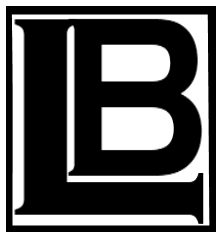“Lawrence Block is one of the great mystery writers of our time; this is indisputable — and “our time” ranges back to about 1960, when Block started his transition from a teenage hack writer of sex novels (at amazing speed) into a writer with wider interests but a usual home in the field of crime fiction. But he’s never written explicitly at book length about his career — though he’s obliquely tackled it from several angles, including his books on writing (starting with Writing the Novel: From Plot to Print) and his memoir of racewalking, Step by Step — though the introduction to this book reveals that he did write 50,000 words towards a general memoir, A Writer Prepares, in the mid-90s, but crashed immediately afterward and hasn’t been able to get back to it.
“But Afterthoughts is the next best thing: it collects forty-five short afterwords, written over the last decade or so for reissues, in print or electrons, of Block’s older books, under his own name and most of his pseudonyms (Jill Emerson, Sheldon Lord, Andrew Shaw, Paul Kavanagh), all of which talk about the writing of those particular books and, to differing levels, what was going on in Block’s life at the time.
“It’s not a memoir, exactly — but it’s not not a memoir, either, and that deeply Blockian ambivalence to the clean, straight, obvious answer makes this a wonderful book for Block fans. He writes more thoroughly and in detail about both his early writing life — those sex books, those pseudonymous books, the quickie thrillers — and his personal life at the time than I’ve ever seen him do before. He doesn’t reveal everything, and he doesn’t tell it straight through — but Afterthoughts does become a memoir-in-parts, the way some novels are built up out of disparate short stories: each bit reveals one facet, and then the next reveals another facet, until, in the end, there’s a clear view of Block. It’s not the view, though: I won’t presume to speak for him, but I’ve always gotten from his best work a feeling that human behavior and even selfhood are terribly contingent — any man is who he is at that moment, because of what happened a moment ago and ten years ago, and there are many events and actions that can be described, but not entirely explained.
“So Block tells us what he can: what he remembers, what he judges worth telling, what doesn’t hurt others (he dances around the edges of this; his love-life apparently had some very tabloid-ish chapters), and what is relevant to the backstory of any particular work of fiction. Block’s prose is smooth and lovely as any of his mature work: he’s a writer whose work is always deeply enjoyable to read, with pleasing sentences mustered carefully into pointed paragraphs that add up to precise essays — even as he affects an off-hand, here’s-what-I’ll-tell-you-next tone. Afterthoughts is a fine mosaic memoir of this writer’s career, but it’s also of interest to anyone who cares about writers’ careers in general, about the workings of publishing in the ’60s and ’70s, or just the varied ways that good stories can come to be.”
